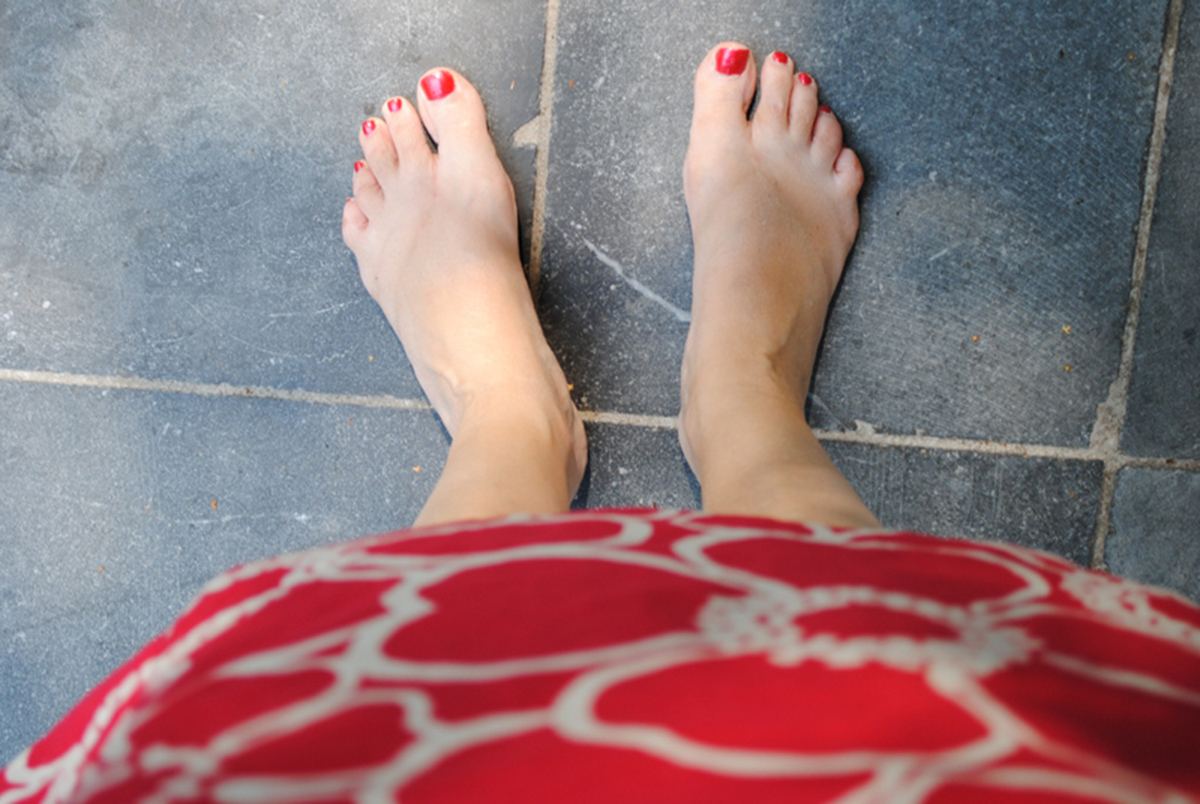Table of Contents
Going Barefoot Helps You Connect With Nature
Our feet are our natural point of contact with the earth — if, that is, we do not force them into shoes all the time. Summer is the perfect time to explore what feeling dewy morning grass, warm beach pebbles, or the soil of a vegetable garden, under our feet can do for us. While the idea that allowing your feet touch base with the Earth is literally grounding might sound all hippy-dippy to you, you only need to experience it to know it is true.

What Going Barefoot Does For The Physical Body
When we don't wear shoes, the body isn't dependent on the crutches we call shoes to create its posture, and rather relies on itself. When we walk barefooted, we end up walking in the position nature had intended for us. Physically being in touch with the earth improves our sense of balance as well as our awareness of the environment we're walking in. As such, walking barefooted decreases our risk of injuries while increasing our spine health.
READ Are Your Shoes Damaging Your Health? Benefits Of Being Barefooted
Barefoot For Brain Development?
It isn't just adults who could benefit from spending more time without shoes. What about babies, who are just learning to walk, though? I have certainly seen a fair number of new walkers stumble over their own shoes. Parents, with the best intentions, tend to go out of their way to buy "anatomically correct" shoes for their new walkers, but what if they'd be better off without any shoes at all?
Chiropractor and doula Kacie Flegal talks about the benefits being shoe-free could have on our little ones, noting that the feet are extremely sensitive parts of the body and adding that the feet are key to a little-discussed sense, proprioception. Felgal wrote:
"Proprioception is the ability to perceive the motion and position of our bodies in space and is generated by receptors located within our joints, connective tissue, and muscles. When activated by pressure and movement, proprioceptors send direct signaling to the brain telling it how the body is oriented. "
Even those who have never heard the word "proprioception" will recognize what she's talking about. It also makes sense that just as babies naturally learn through oral and manual exploration, the sensory feedback they get from bare feet could help them make sense of the world they are in and encourage their neurological development and motor skills.
Is Going Barefoot Safe In Today's World?
There is a couple in my small home town that always goes barefooted, even in winter. Of course, they are memorable precisely because they are not wearing shoes, and they look every so slightly wacky — yet also admirable. One day, though I wasn't sure whether it would be impolite, I started a conversation with them. They assured me that they had never cut themselves, that their feet feature thicker skin than shoe wearers would have, and that they automatically look out for potential hazards. Unless a risk of frost bite exists, ditching shoes is perfectly safe.
READ Ten Reasons You Should Start Running Barefoot
The couple I sometimes encounter is part of a growing movement of barefoot folks, people who say no to shoes all the time. However, you don't need become a full-time barefooter to reap the benefits of feeling the earth under your feet. Even just taking your shoes off after you come home from work, or switching to slippers at the office, or daring to explore your local forest barefooted once in a while will offer you tangible benefits.
- Photo courtesy of gayaeivin123: www.flickr.com/photos/gayaeivin123/8044538183/
- Photo courtesy of sabine&cats: www.flickr.com/photos/11699998@N04/4780554985/
- Photo courtesy of sabine&cats: www.flickr.com/photos/11699998@N04/4780554985/

